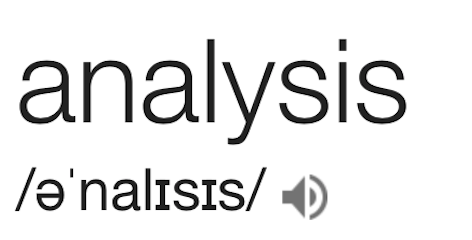FSC’S Measure B Analysis
Want to know if the new Measure B permitting affects you and your business? While the law is still very new, and there are many uncertainties still in how it will be enforced, we’ve broken down the basics.
What is Measure B?
Measure B is a ballot initiative that was passed by voters in LA County in 2012. It mandates condoms on adult productions in Los Angeles County, as well as a host of other requirements. It officially went into effect on August 1, 2017.
Who Does This Affect?
Anyone who produces adult film in Los Angeles County is affected — cams, customs, studios, photosets and more. The law defines a producer as anyone that produces, finances, or directs, adult films for commercial purposes. This means not only traditional producers, but performer-producers as well. The Vivid Entertainment lawsuit limited the definition of adult film to those having penis-vaginal or penis-anal sex. Producers who during a two year period create exclusively girl-girl or solo content are exempt.
How Do I Comply?
Measure B mandates that all productions within LA County use condoms for anal or vaginal sex with a penis. It also requires that all producers and their management level employees, especially directors, take sexual health classes and that all producers (including performer-producers) pay a permit fee every two years and post signage about condom requirements..
Secure a permit from the Department of Public Health every two years. The fee is currently $1671. DPH will require you to affirm that you will use condoms, and It mandates that all productions within LA County use condoms for anal or vaginal sex with a penis. It also requires that all performers take sexual health classes and that all producers (including performer-producers) pay a permit fee every two years.
Secure an additional Film LA permit for every single shoot, at a cost of $250-$350.
What is the Punishment if I Don’t Comply?
Non-compliance with DPH permit requirement is a misdemeanor offense resulting in fines of up to $4k (including penalty assessments) and up to 6 months in jail.
However, the enforcement mechanisms are unclear. The industry mounted legal challenges to Measure B after its passage, and subsequent legal decisions stated that inspections proposed in the measure were unconstitutional — that is, the Measure could not be enforced as the Measure directed.
That doesn’t mean it cannot be enforced, however. Likewise there likely will be future challenges as the Measure is adopted into law. We expect that enforcement will be complaint driven, similar to Cal/OSHA. We recommend that all LA County based producers confer with their legal counsel for further details including possible exemptions from prosecution.
Is this different from Prop 60?
While Prop 60 and Measure B both mandate condoms, they are not the same. The defeat of Prop 60 has no effect on Measure B. Proposition 60 was a 2016 statewide ballot initiative modeled on the language of Measure B passed in 2012. Prop 60 affected all of California, while Measure B only concerned LA County. Both, however, were conceived and bankrolled by Michael Weinstein and the AIDS Healthcare Foundation (AHF). Both ignored performer voices, and trafficked in stereotypes and misinformation about the industry. In some ways, our success with Prop 60 was born from the lessons we learned with Measure B. Unfortunately, Measure B still stands.
How Did Measure B pass? And why is it only in effect now?
Measure B was proposed by LA based AIDS Healthcare Foundation (AHF) in 2011, and pushed through with a $6 million dollar campaign which argued that adult performers were carrying diseases, including HIV, into the public. FSC led the fight against the law on the ballot box, but we were massively outspent, and had never fought a wide-ranging political campaign before.
Despite opposition from many in city government, and major outlets like the LA Times, the law passed with 56% of voters. Ultimately, the difference between winning and losing was less than 10% of registered voters. Vivid Entertainment and others filed challenges to the law in court, and was successful in stripping it of many of its enforcement mechanisms. While the case was being litigated, the law could not be enforced.
Once the lawsuit was settled last March, the County began the process of determining how the permitting would work.
What’s Next?
FSC has spent the past several months battling with the Department of Health and the Board of Supervisors over the permitting structure. While we were unable to stop the permitting at this level, FSC is looking at all options to tackle this ignorant and stigmatizing law, including legal challenges, amendments and a ballot-initiative to reverse it.
What is FSC’s Position on the Law?
We condemn that Measure B is solely focused on utilizing condoms, and ignores other prevention options that are far more effective.
We condemn that Measure B and the DPH permit fee structure was written, pushed through, and now adopted by the LA County Board of Supervisors without input by the actual stakeholders and with a severe lack of understanding of the adult industry.
We condemn the permitting fee structure as it ignores the realities and variations of productions. While $1600 for two years may be practical for larger companies which continuously shoot in LA, this is an undue burden for small companies who shoot once or twice in the county.
Still have questions? Feel free to contact [email protected] and we’ll do our best to walk you through compliance.

